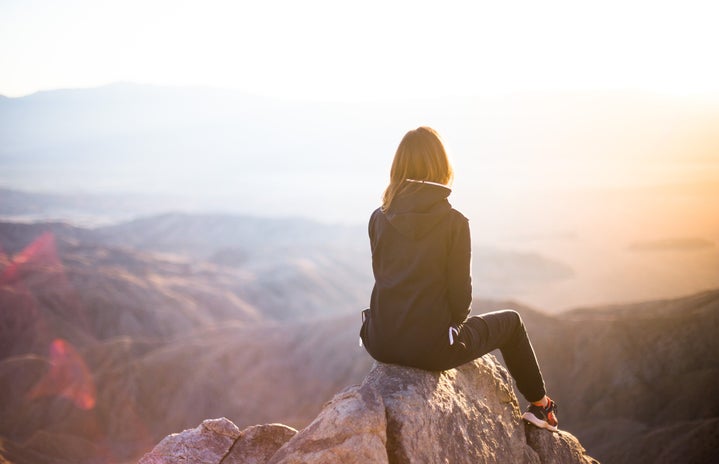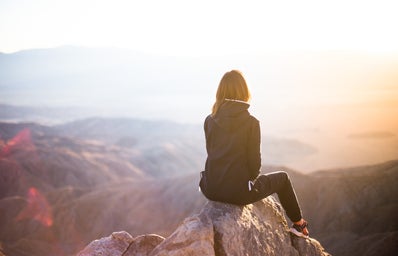Edited by: Geetanjali Roy
I can enjoy history like sightseeing but I can’t study it. As someone who loves history, this phrase has created the insurmountable gap between my world and everybody else’s. As a victim of the age old education system, (no pun intended) I recognise why — history could’ve been your bane of existence through school. Yet, if you’re even mildly interested in history or travel, or were obsessed with Percy Jackson like me in middle school, this is for you.
If you haven’t had the opportunity to go to Greece yet, you’re probably imagining this article to be about the picturesque sunset at Santorini or the transcendence that a bowl of Greek yoghurt might invoke. While you won’t be wrong, as someone who sold my soul to the ruins the first chance I got, I can assure you that there is more to it than what Instagram allows you to believe. So here is a run through from what will hopefully only be my first tryst with Greece.
Start in Athens. You can spend endless hours frolicking about the flea market or even the beaches along the Aegean, so it’s important to know your priorities. For classical art and sculpture lovers, the most obvious place to start is the ancient acropolis built in the 6th century BCE, currently undergoing restoration. This includes the grand Parthenon where the statue of Athena, the Patron goddess of the city, once stood. As the story goes, she beat Poseidon, creating a better gift for the people of Athens — olives (yeah, you have her to thank for all the dirty martinis). The acropolis museum is close by, with the broken busts and panels from ancient temples and agoras where people just like us once roamed. Interestingly one of our tour guides in Athens (who basically looked like a Greek god), was named Demetris after the goddess of harvest ‘Demeter’, proving you can’t separate myth from reality anyway.
If you’re interested in painful punishments and hemlock poisoning, the Socrates prison on a hill near one of the first open air democratic voting sites is worth visiting. I recommend watching a crash course Youtube video about the Olympians before visiting other sites like the Temple of Zeus or Hadrian’s Arch and so on. The real stuff you need to know are your dips and yoghurts. From Tzatziki to Fresh Feta to Watermelon, there are some things worth splurging on in the capital city.
The bus from Athens took us to Delphi, the magnificent 15th century BCE home of Apollo’s great oracle. Walking on the ancient city’s ruins, you can imagine how different people across the subcontinent would come to ask for prophecies, both personal and for statecraft. What I have kept from this encounter, is the feel of those temples, the rugged walls thrumming with the hopes and dreams of all those who wanted to know about their fate. Among all these ancient cities, there are a few common features to look out for- stadiums for the annual games, agoras or marketplaces which were the hub of life, broken floors with colourful mosaics, temples on the raised part of the city called the acropolis and of course the famous open air theatres – because of the Greeks’ love for drama.
Next up, the town of Meteora, perched upon sharply cut, water and wind eroded rocks is another lesser known gem of a destination. You cannot help but gasp in awe seeing its hanging monasteries, connected only by ladders or narrow staircases even today. Home to ascetic monks who came and settled in nooks and crannies, it is now a full-fledged town, inviting curious travellers for a climb never experienced before. I remember wondering how this was even part of the same landmass. You might be a little out of breath by the end, but you won’t regret it!
The social media favourite island of Santorini, known for the white houses and the pristine aquamarine waters all around, is very Mamma Mia. From the cobblestone streets, we walked almost the entire island on foot to watch the sunset at Oia. We even took a ferry from the port at Fira to climb an active volcano in the scorching sun, one of the craziest things I have ever done in my life. This tour is often followed by a dive in the Aegean sea from the ship to cool off, with the option to swim to the nearest islands. It was then that it dawned on me that swimming in the sea takes more than just coaching lessons. Nevertheless, if paradise on earth is real, it closely resembles Santorini.
My personal favourite was the island of dreams and deities called Delos, the twins – Apollo and Artemis’ mythical birthplace. Impregnated by Zeus and cursed by his wife – Hera, their mother Leto couldn’t give birth on solid land. Leto arrived upon the floating island of Delos which later became rooted to the ocean floor when she gave birth. It was actually a tiny, almost deserted museum at Delos that made me realise I want to get into this field of ruins and stories, and perhaps one day, even return to work at that museum. Keeping all this in mind, I should tell you there is so much more in this country, to be found, waiting for you. History and travel require a toolkit of values to which humility and imagination are integral. To accept one’s miniscule position in the world and yet have the courage to not stop requires grit, which can at times be too demanding.
The point I’m trying to make is that just about anything can be history because all it really is, is a story. Whenever I travel or read about a place, I realise that there is this sense of transcendence to be found, only if you look closely. Imagining someone else standing there before you, living on the same ground, perishing under the same sky, has a way of making you feel insignificant and alive at the same time. When you are able to look past the dates and the timelines, there is another world to be found. It is almost like believing in magic. Like Dumbledore said, those who don’t believe in it, will never find it.


